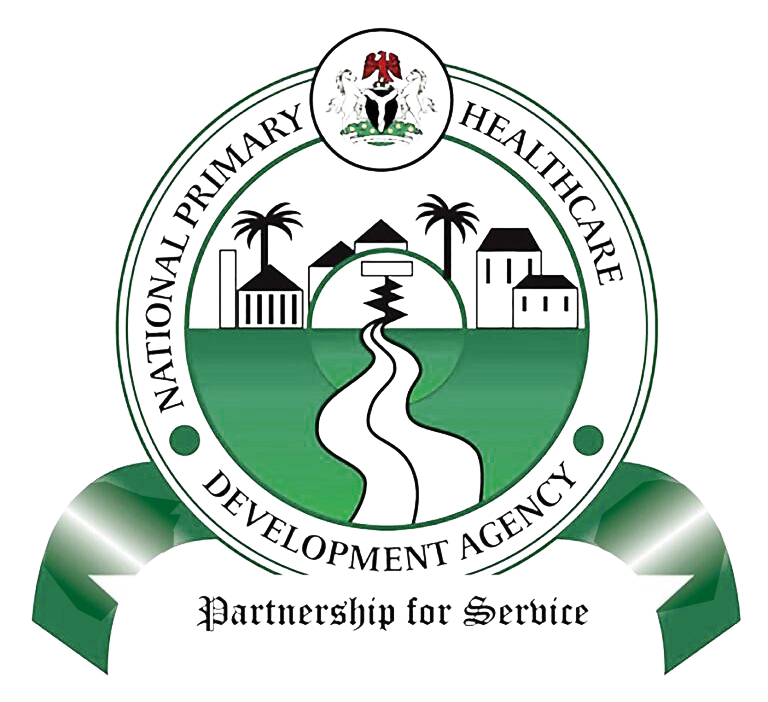- Home
- BHCPF
About BHCPF
The Basic Health Care Provision Fund (BHCPF) was established under section 11 of the National Health Act (2014) as a catalytic funding to improve access to primary health care. The BHCPF serves to fund a Basic Minimum Package of Health Services (BMPHS), increase the fiscal space for health, strengthen the national health system particularly at primary health care (PHC) level by making provision for routine daily operation cost of PHCs, and ensure access to health care for all, particularly the poor and vulnerable, thus contributing to overall national productivity.
The funding for BHCPF is derived from (a) an annual grant from the Federal Government of Nigeria (FGoN) of not less than one percent (1%) of the Consolidated Revenue Fund (CRF); (b) grants by international donor partners; (c) funds from any other source, inclusive of the private sector.
The BHCPF is implemented by 4 Gateways namely, The National Primary Health Care Development Agency (NPHCDA) Gateway, National Health Insurance Authority (NHIA) Gateway, National Emergency Medical Treatment (NEMT) Gateway, and Nigeria Centre for Disease Control (NCDC) Gateway.
Objectives
To achieve 17,600 fully functional public or private primary health care (PHC) facilities nationwide, with at least one in every political ward by 2027.
To achieve at least 1 (one fully functional) secondary health care facility per LGA, benefiting from the BHCPF in all states by 2027.
45%
48.75%
5%
1.25%
Overview of the NPHCDA Gateway
The NPHCDA is responsible for implementing the NPHCDA Gateway (45% of BHCPF) through State Primary Health Care Boards/Agencies (SPHCB/A), Local Government Health Authorities (LGHA), and Primary Health Centres (PHCs). These agencies ensure direct implementation within the states.
Funding through the NPHCDA Gateway consists of 35% Decentralized Facility Financing (DFF), which is disbursed directly to PHCs. This includes 20% for essential drugs, vaccines, and consumables, and 15% for facility maintenance, equipment, and transport. An additional 10% is allocated to Human Resources for PHC interventions, with 5% minimum for midwives and up to 5% for Community-Based Health Workers (CBHWs).
The NPHCDA Gateway ensures operational funding is available at PHCs to deliver quality primary healthcare services nationwide—especially in rural areas targeting low-income households. This is a significant step toward achieving the SDGs and Universal Health Coverage (UHC).
35% as Direct Facility Financing (DFF)
- Disbursed from the BHCPF TSA to PHCs’ commercial bank accounts.
- Used for:
- Minor repairs
- Medical consumables
- Community outreach
- Supportive supervision
- Essential drugs and supplies
- Facilities must have functional Ward Development Committees (WDCs) and submit business and quality improvement plans.
Implementation of 2-Tier DFF Payments (BHCPF 2.0 Reform)
Eligible BHCPF PHCs will receive DFF in two tiers based on service utilization, workload, and outcome data. Facilities will be assessed biannually:
- High Tier: Facilities above the state’s 75th percentile
- Low Tier: Facilities below the state’s 75th percentile
This data-driven approach promotes accountability and encourages better health service delivery at the grassroots level.
10% for Human Resources for Health (HRH)
Workforce Gaps
Addresses critical workforce gaps in Primary Health Centres (PHCs).
Skilled Health Workers
Focuses on recruitment, training, and retention, especially in underserved areas.
Capacity Building
Supports task shifting, personnel deployment, and health system strengthening.
Implementation of the NPHCDA Gateway commenced in May 2019, with over 8300 validated BHCPF PHCs currently receiving quarterly DFF with ongoing plans to expand to more PHC facilities to benefit from the BHCPF Intervention.
The BHCPF, through its structured and accountable financing mechanism, is helping to:
Improve availability and quality of essential PHC services
Enhance transparency through digital financial tracking
Strengthen the functionality of PHCs
Bridge equity gaps in healthcare access, particularly for vulnerable populations
